“I Have Left, but I’m Still There”: The Last Gaza Diary
After 84 days, Atef Abu Saif left Gaza. Here, he reflects on what he endured.
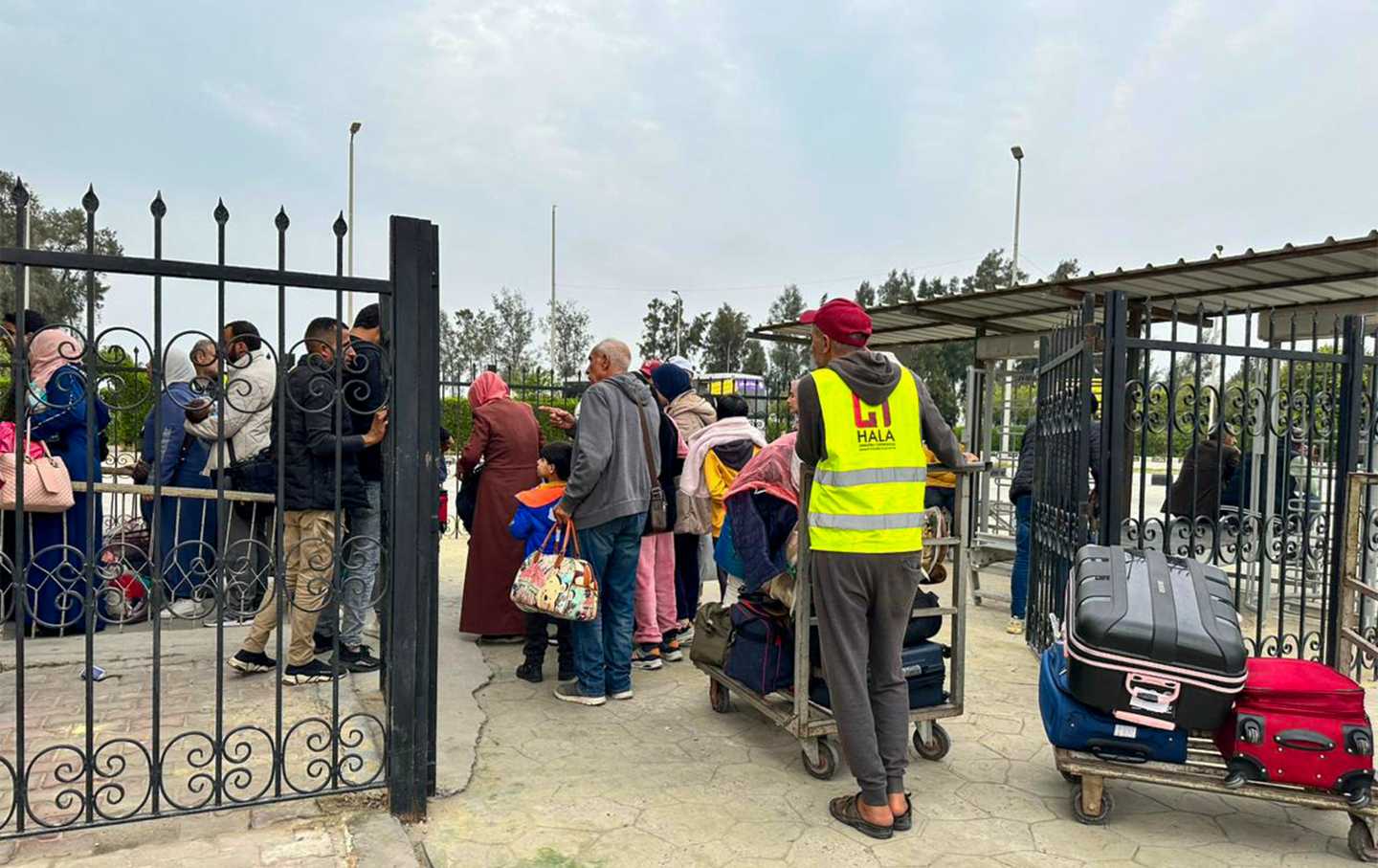
Palestinians and dual nationality holders fleeing from Gaza arrive on the Egyptian side of the Rafah border crossing with the Gaza Strip on December 5, 2023.
(AFP via Getty Images)On December 29, Atef Abu Saif, the writer and politician whose diaries from the Gaza Strip have been featured in The Nation since November, left Gaza with his son after 84 days under Israeli siege and bombardment. He crossed into Egypt, visited his niece—who was in an Egyptian hospital after losing multiple limbs in an Israeli airstrike—and began processing the horrors of the experience he had just endured.
He then wrote this diary entry. It is the last of his Gaza dispatches.
Saturday, December 30 (The Day After)
Yesterday morning, on the 84th day of the war, I was told my name and that of Yasser, my son, were included on the list of those who can leave. It all happened very suddenly. By noon we were at the Rafah Crossing. The officer at the border gate called me forward and asked what numbers we were on the list: “Numbers 13 and 14,” I said. He let us in, and, with others, we traveled across the no-man’s land between the two borders in a very slow-moving coach. After just two hours in the Egyptian hall—usually it takes much longer, sometimes days–we passed through the Egyptian border.
Out in the daylight on the Egyptian side, it was cloudy, but I couldn’t help looking to the northeast, back toward the Strip, toward my home, the place where I’d nearly lost my life so many times, and where, if anywhere, my soul still resides.
Read the previous entries
Yasser was ecstatic to be leaving. “Aren’t you also?” he asked. I didn’t know how to respond. I was relieved, of course. I had survived —not because of any heroic act on my part. But because of luck. Pure chance. With survival comes a duty: to tell the story. But also with it comes an inability to ultimately comprehend why you survived and others didn’t.
In the taxi heading west, I found myself absentmindedly flicking through the last 84 days of horror and terror. Had it all been a dream, I thought for a moment. Every detail of every day was perfectly vivid. I considered all those I’d left behind, and suddenly felt ashamed for abandoning them: my father, my brothers and sisters, my in-laws, my nephews and nieces.
Did I really have to leave? I asked myself. It was the same soul-searching I went through when I left the north. Did I betray those with whom I lived all this time? Should I have stayed until the war ends? I spent 46 days in the north, seeing my closest colleagues killed every day. After that I lived in a tent for over 30 days, sleeping on a mattress on the cold sand, often with only one blanket. My wife, Hanna, feels I should have left Gaza in the first few days of the war when the borders were still open. I now feel I should have stayed till the end.
That’s the exile’s dilemma. You suffer if you stay. You suffer if you leave.
When I left this morning, I stood for a moment and looked at the tent that had been my home for over four weeks. I knew, strangely, that I would miss it. I wasn’t going to miss the cold or the constant hunger, of course, but I was going to miss the moments I spent with so many others in their displacement. When I left I hugged everyone one by one, and exchanged wishes and promises for our next meeting, promises that we had no way of knowing if we would ever keep. I kissed my great-aunt Nour. She cried and made me promise to come visit her when this is over, if she is still with us.
The first thing we decided to do when we left the Egyptian border was take a taxi to visit Wissam. She was initially treated in Port Said, but then moved to a hospital just outside Ismailia, on the Suez Canal.
When we arrived I was shocked to see my niece Wissam all alone in her room on the second floor of the hospital. “Where is Widdad?” I asked the manager of the hospital who had very kindly received me and taken me to her room. Widdad was supposed to be with Wissam, taking care of her.
“Unfortunately your niece suffered from a nervous breakdown,” the manager explained. Soon after I arrive Wissam starts to cry, saying she wants her sister back. “She is all I have left,” she sobs. “She is my family.” The atmosphere in the room is almost unbearable.
I repeated all the reassurances I had tried to give in the early days after the attack on their house. Hanna encourages me by text, saying that Wissam listens to what I say. I try to take a jokey tone: “You are an artist, Wissam, and I am a writer. We have work to do.” She raises her left hand. “An artist with one hand,” she says. I laugh: “This is a magical hand. A hand that is more important than all the hands of the people of Planet Earth.”
I couldn’t help looking to the northeast, back toward the Strip, toward my home, the place where I’d nearly lost my life so many times, and where, if anywhere, my soul still resides.
“When are they going to fix me up with prosthetic legs and a hand?” she asks. I don’t know the answer to this. Wissam smiles and says, “You remember in Al-Shifa you promised me that I will have legs better than old ones.” “I didn’t know what I was saying,” I whisper.
“I have a gift,” I say trying to change the subject. “Have you brought me legs?” she jokes. “I think you will like it,” I say confidently. When I was waiting at the border, I started to look through the bundle of papers, notebooks, and photos I had carried from my father-in-law’s house before leaving for the south. Among them, I found a small notebook in which Huda, her mother (who was killed in an airstrike), had written a love letter to Hatem, her father (who was also killed), before their marriage. Inside the notebook, there were also some of Hatem’s letters to her. Thirty-five-year-old letters. Letters of love, on which a family was built.
Wissam goes crazy when I tell her about them. She has to have them! No one in the family has ever heard of these letters. Huda had hidden them away in her parent’s house. It occurs to me these few photos and love letters will be the only thing Wissam inherits from her late parents.
There are around 45 injured Palestinians being treated in the hospital. I visit some of them, before leaving. I am particularly touched by my meeting with Omar, a 5-year-old boy who was hit in his arms and face. He is full of stories of his other brothers and sister who were lost in the attack on their building. Is he lucky to have survived and been left alone in the world? I chat for about half an hour with a smiling girl, in her 20s, who lost her leg when Israelis bombed a building in al-Shati Camp that she just happened to be passing. Her radiant smile is brighter than anything the Israelis could ever threaten us with.
I go with Yasser to Port Said. It is midnight by the time we get into our hotel, and the first time I’ve seen a bed in months. I did nothing, just threw myself on the bed and slept. I felt my back rejoicing at the comfort. I heard my bones congratulating each other.
It is true I have left, but I’m still there. I think of my father, “Abu Atef” as he would be called. It’s been more than a week since we’ve heard anything about him. Is he still alive? When was the last time he ate something? Does he have water to drink?
I think of my sisters and brothers who I’ve left in Jabalia and Rafah. I think of the inhabitants of the tents, of the daily queuing, of the alleys and roads I used to walk every morning, between tents and into town. I think of the taste of the tea I made on the fire each morning. I think of the day I return—if I ever will—and who will be left alive. There will be no Huda, no Hatem, no Mohammed al-Jaja, no Mohammed or Ahmad Khila. I will have to change the pattern of my life. There will be no Bilal to spend my Saturdays with. There will be no Salim al-Nafar to talk poetry to. There will be no old city. No Saftawi. No Jabailia as I know it. Gaza, the one I knew, will not be there anymore.
As I fall asleep, I see the dead walk, I see the living die, I see a boy searching for his mother in the corridors of al-Shifa. I hear his words —”Mama, Mama”—flying through the air along with all the debris. I see trees uprooted and their fruit squashed into dirt under tank tracks. I see the walls disassembling midair, in ultra-slow motion, slowing spinning and moving closer and closer to the occupants of the house, lying perfectly still in their beds, trapped in their slumber, as if for centuries like sleeping beauty.
I see a girl crying for her lost doll, shouting for it to come back, angry with it. I see a city being erased from the world’s memory, building by building. I see death sneaking through parks and gardens. I see it all and still, even after 84 days of it, I don’t believe any of it is happening. It must all be a nightmare, I think to myself, in the dream. It must all be a nightmare.
Widdad had a nervous breakdown a few days after leaving Gaza with Wissam on their arrival in Port Said. When she crossed the border, she suddenly saw the truth: She had lost everything—her mother, her father, her brothers—and she must now spend the rest of her life taking care of her sister with no legs and one hand. All of these realizations crashed in on her at the same moment, and she couldn’t bear it.
Now she is being treated in a psychiatric facility in Port Said. This morning, I visit her in her room, in the presence of three other nurses. She has lost a lot of weight. For three weeks, she has been given medicine and subjected to psychiatric analysis sessions. She tells me she can no longer bear any of it. It is better if she dies. “What do I have to live for?” she asks. “What is there even for Wissam to live for? How are we going to live? The only good people in the world have died [she means her parents]. Why we should live on after them? I can’t do it.” “You must carry on,” I say, “because Allah kept you alive for a reason. It is His wisdom. None of us can understand it, but you must struggle to prove Him right.”
Popular
“swipe left below to view more authors”Swipe →On my way out of the hospital I couldn’t hold back the tears, thinking about this beautiful, happy, vivacious young girl living with so many other older sufferers of mental health problems. That is the madness of this war. I have survived it. Who knows why. Only time will tell if Widdad survives it. Or if all my brothers and sisters, my father and friends, will survive it too. What terrible news will reach me next?
Now, as I sit on the balcony of my hotel in Port Said, I see everything. I see all 84 of the days I lived through. I hear the voices and the screams. I see the rubble. I look deeply into the eyes of those who were killed. I am still there. I walk toward my tent. I sit down with my friends to talk about the day’s news. I nag Ibrahim for the umpteenth time to reach out to anyone who might have heard from our father. I smell the smoke of the fire, breathe in the steam of the boiling tea. I still see everything.
Support independent journalism that exposes oligarchs and profiteers
Donald Trump’s cruel and chaotic second term is just getting started. In his first month back in office, Trump and his lackey Elon Musk (or is it the other way around?) have proven that nothing is safe from sacrifice at the altar of unchecked power and riches.
Only robust independent journalism can cut through the noise and offer clear-eyed reporting and analysis based on principle and conscience. That’s what The Nation has done for 160 years and that’s what we’re doing now.
Our independent journalism doesn’t allow injustice to go unnoticed or unchallenged—nor will we abandon hope for a better world. Our writers, editors, and fact-checkers are working relentlessly to keep you informed and empowered when so much of the media fails to do so out of credulity, fear, or fealty.
The Nation has seen unprecedented times before. We draw strength and guidance from our history of principled progressive journalism in times of crisis, and we are committed to continuing this legacy today.
We’re aiming to raise $25,000 during our Spring Fundraising Campaign to ensure that we have the resources to expose the oligarchs and profiteers attempting to loot our republic. Stand for bold independent journalism and donate to support The Nation today.
Onward,
Katrina vanden Heuvel
Editorial Director and Publisher, The Nation
More from The Nation
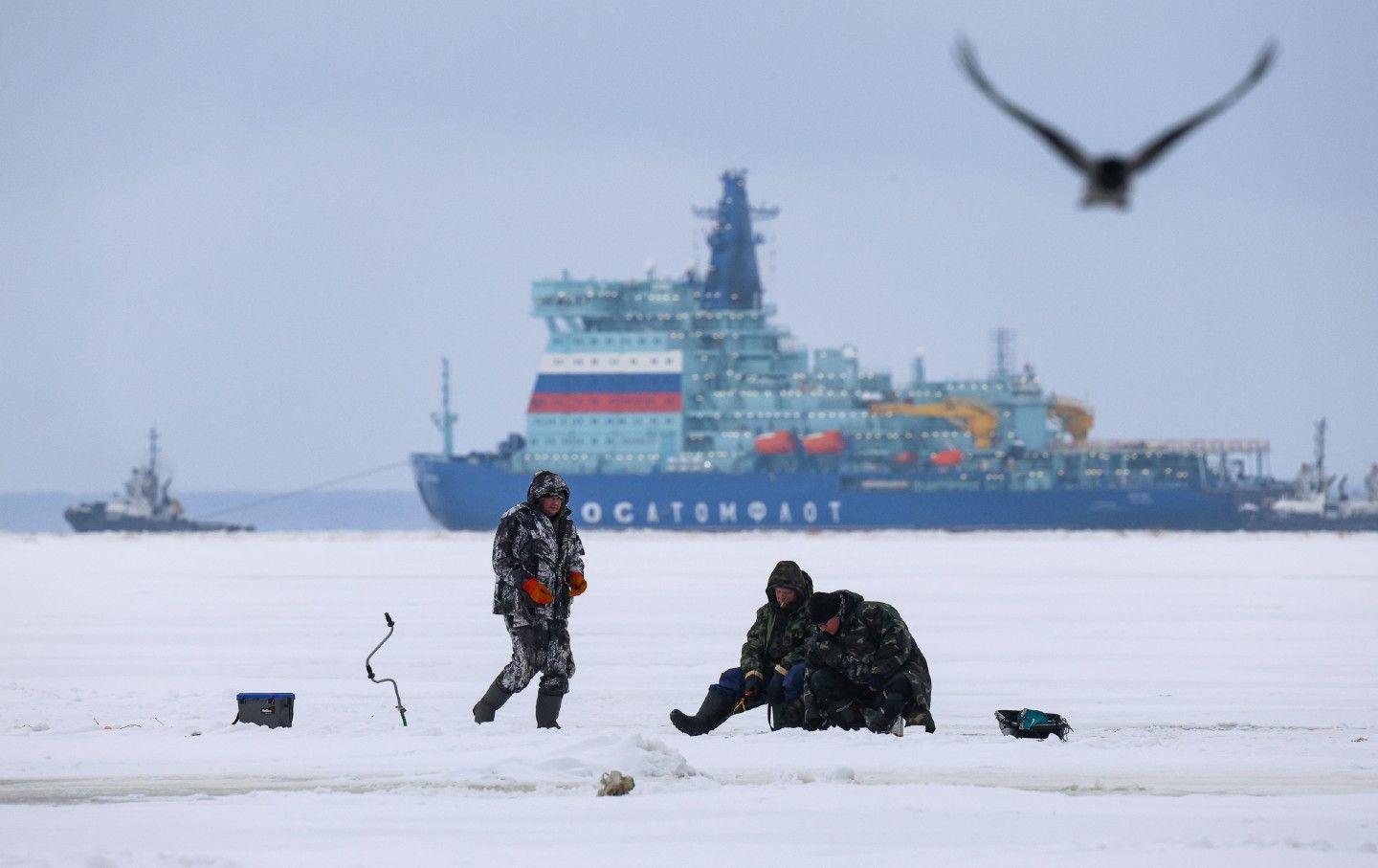
A New Age for US-Russia Arctic Cooperation? A New Age for US-Russia Arctic Cooperation?
Ceasefire talks could be a catalyst for advancing cooperation in the Arctic, but the climate crisis should not be forgotten.

Peace, Not Surrender for Ukraine Peace, Not Surrender for Ukraine
We now have a chance to seize the opportunity that we failed to seize after the end of the Cold War.
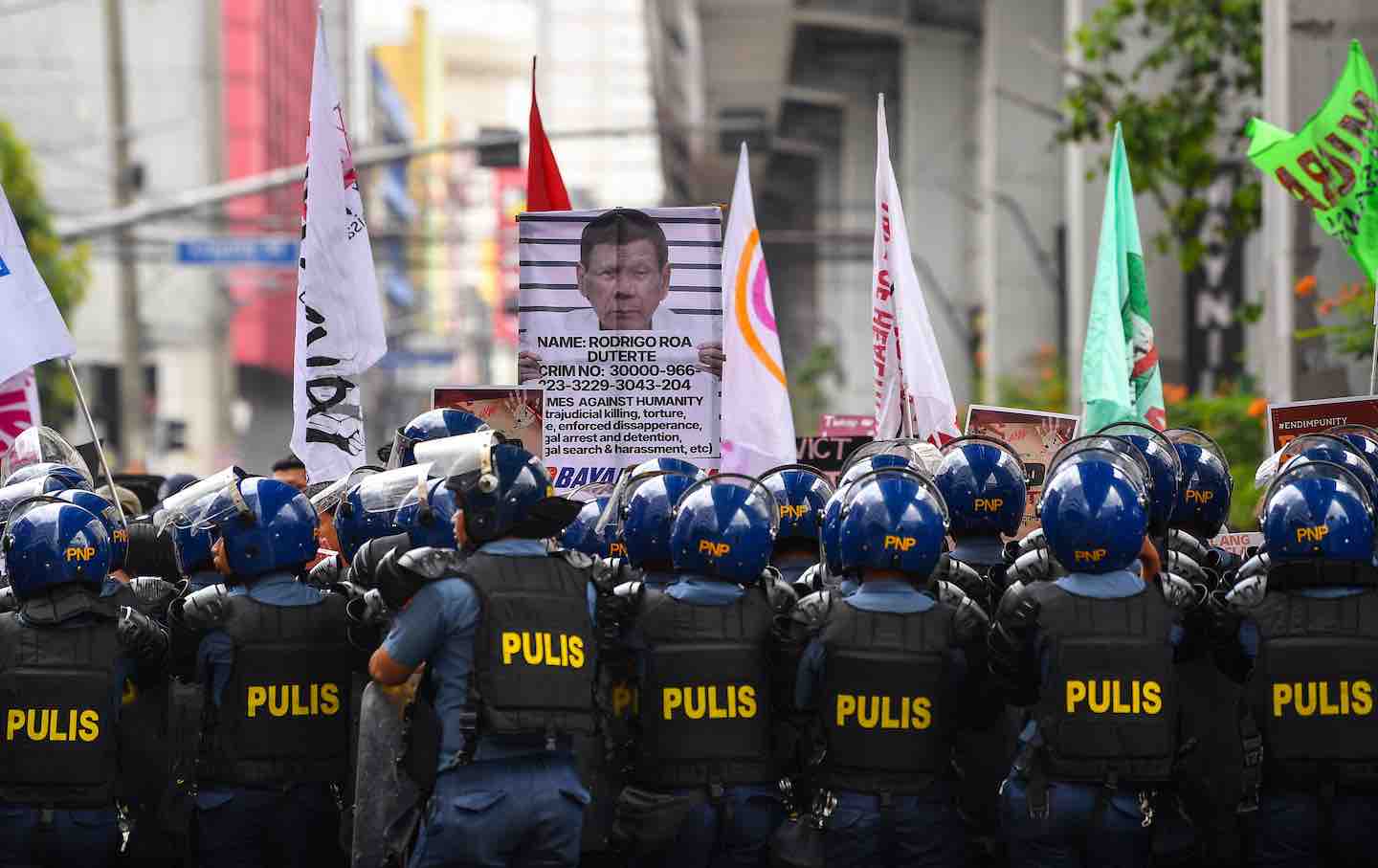
Rodrigo Duterte Is at the Hague. What’s Next for the Philippines? Rodrigo Duterte Is at the Hague. What’s Next for the Philippines?
His arrest by the ICC was a monumental step in prosecuting his bloody drug war. But it’s also the latest episode in a battle between the Philippines’ two political dynasties.
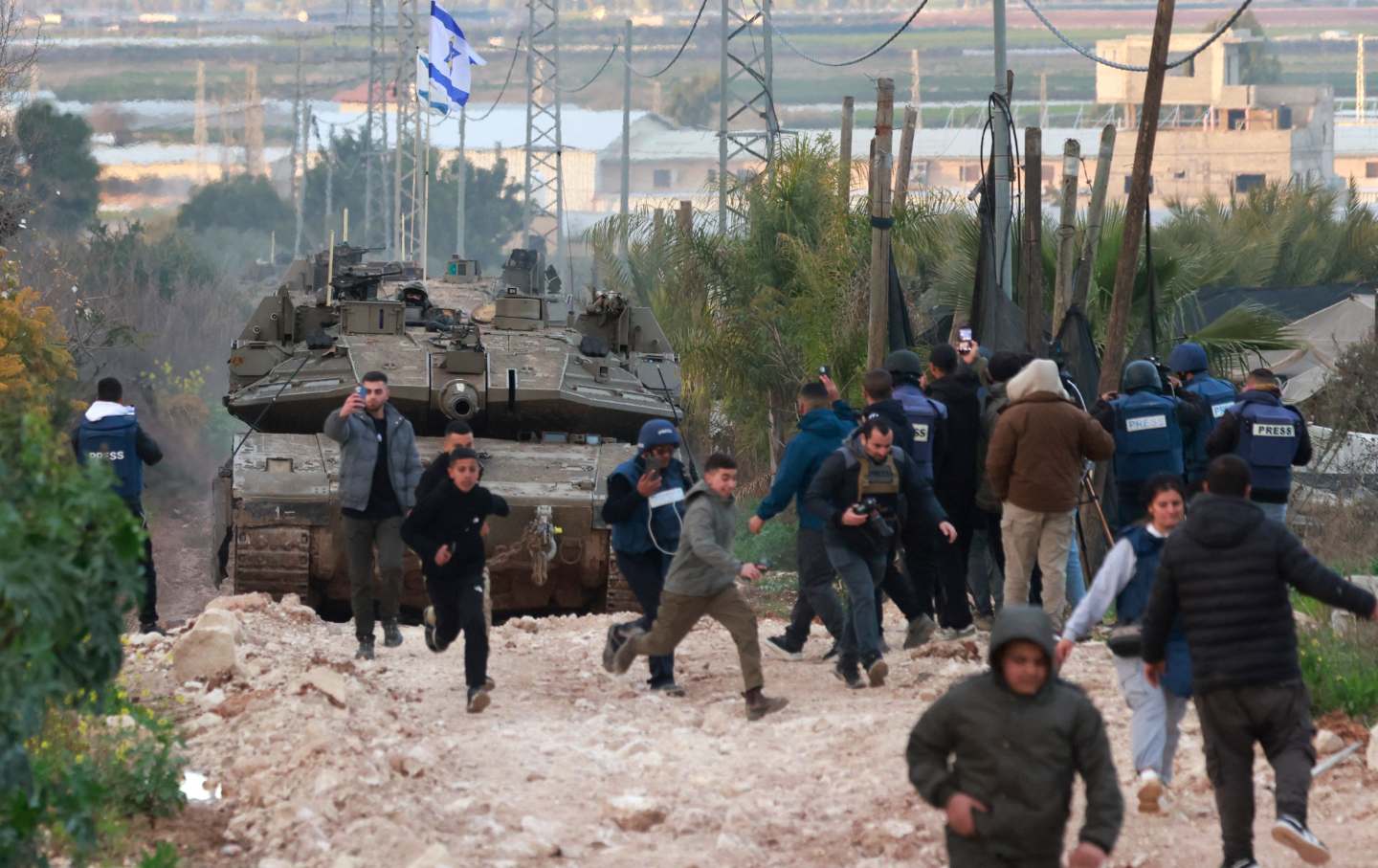
Why Palestinians Can’t Sleep Why Palestinians Can’t Sleep
Sleep deprivation is a form of torture. For Palestinians, it’s a regular way of life.
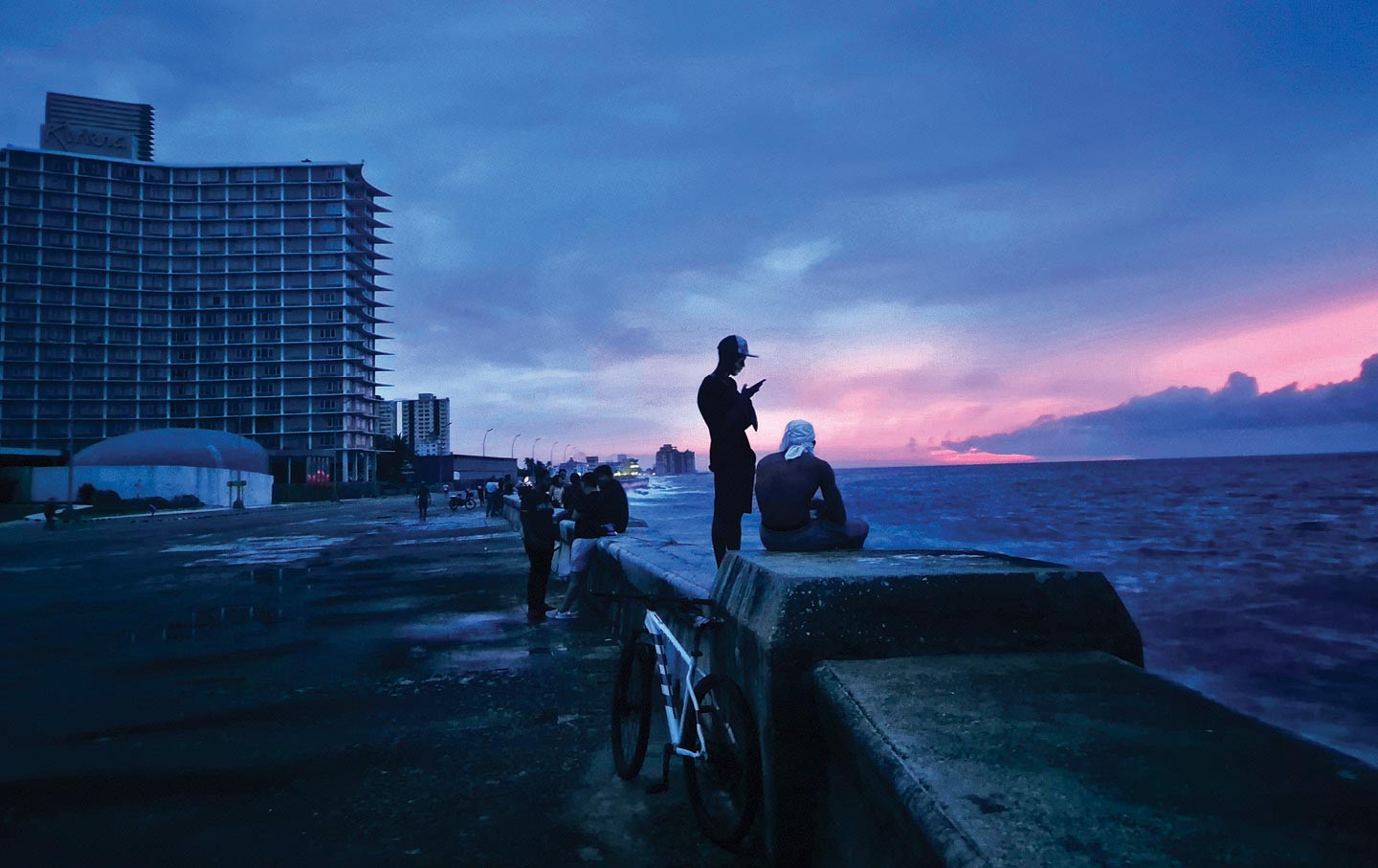
Life in Cuba Under Sanctions Life in Cuba Under Sanctions
Ordinary Cubans are trapped in a vicious circle of government mismanagement exacerbated by the US embargo.
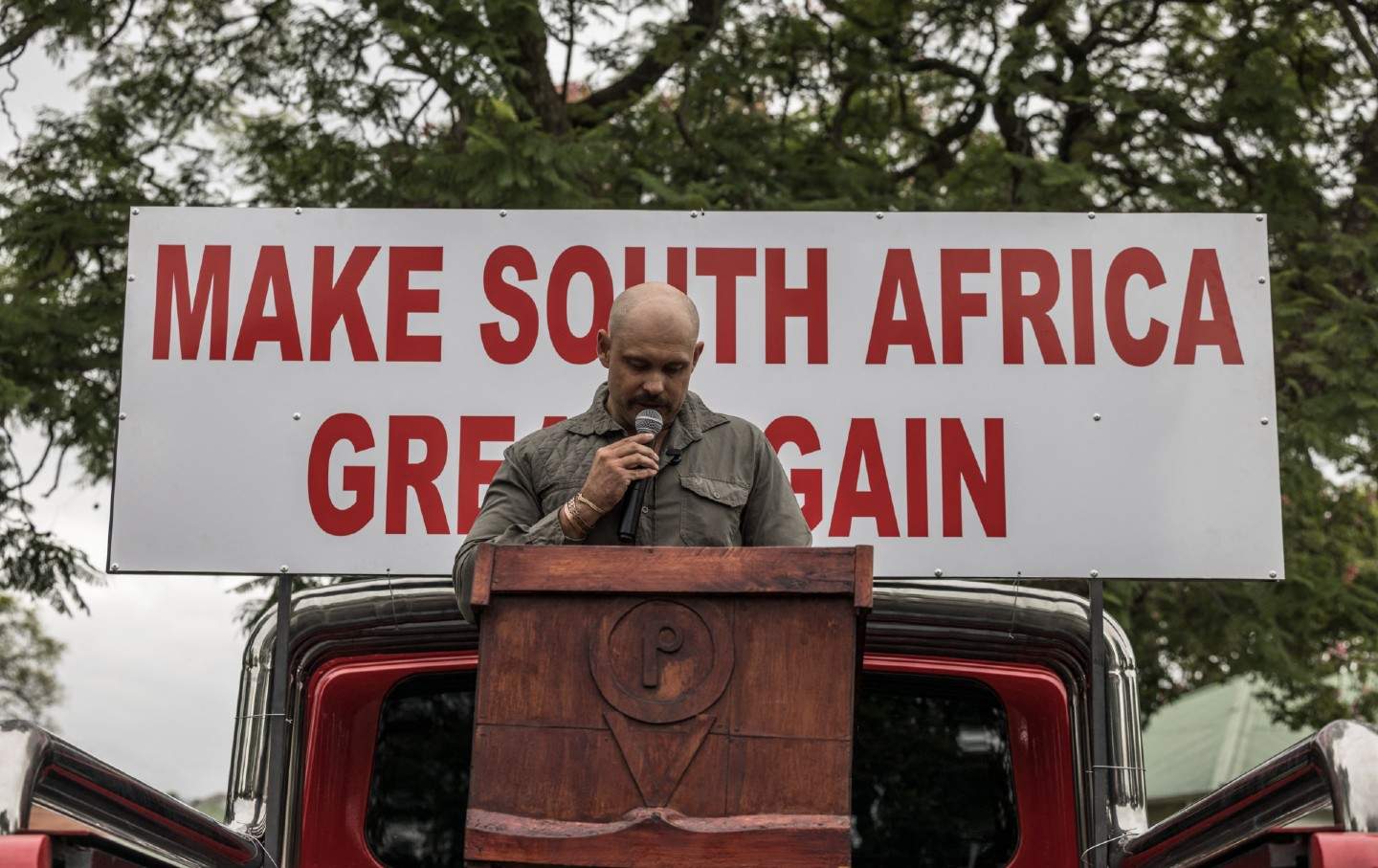
Why Trump Is Threatened by South Africa Why Trump Is Threatened by South Africa
The country’s Constitution gives its citizens more than a right to the pursuit of happiness. But attempts to redeem that commitment to justice have enraged American reactionaries....


